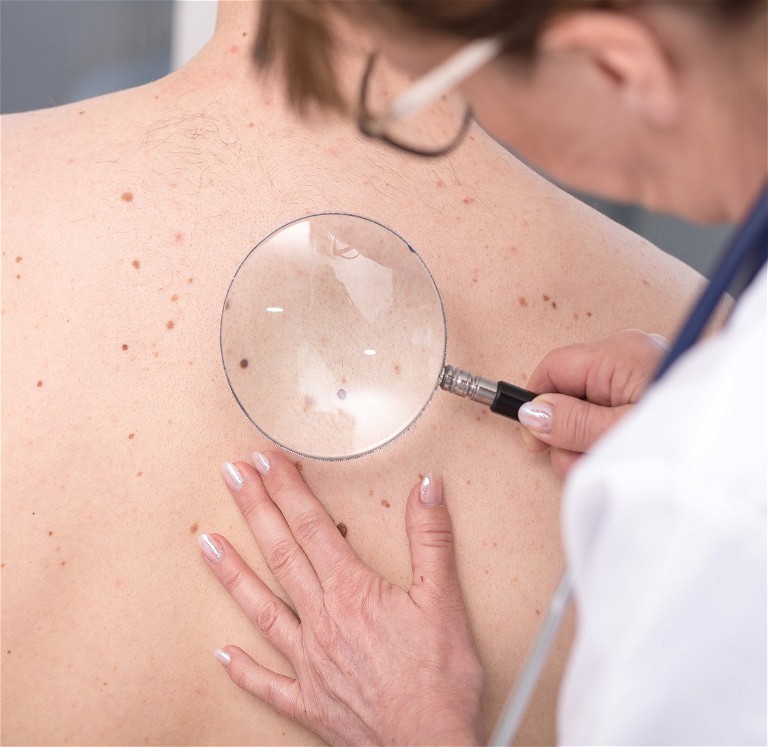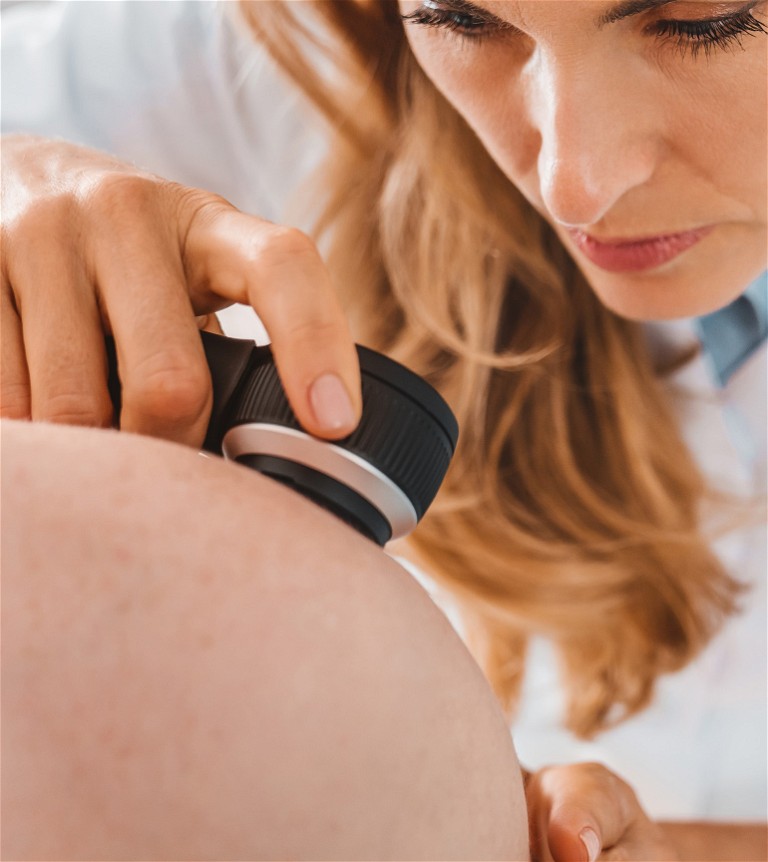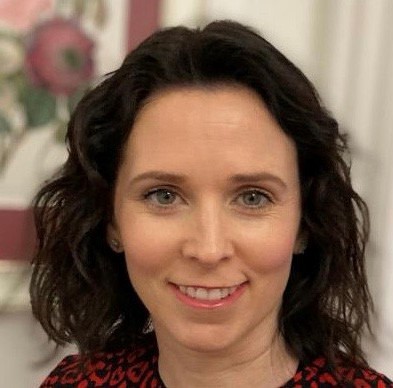NHS AND DERMATOLOGY
Supporting dermatology and oncology services to build back better post-COVID-19
The coronavirus pandemic has challenged the NHS across multiple disciplines, contributing to a growing backlog of patients, and increasing pressure on its staff. Caitriona Walsh, UK Regional Business Unit Head at Novartis, believes that the pharmaceutical industry can play an important role in supporting both patients and NHS beyond the provision of medicines
We are in the midst of a ‘silent pandemic’; a healthcare crisis in which millions of people are waiting for treatment. The NHS faces a challenge in managing the unprecedented backlog which has emerged in services, like dermatology, that were deemed ‘non-urgent’ during the pandemic. This is a challenge that requires bold solutions, close collaboration, and exciting innovation.
COVID-19 has taught us that if we are to bring about real change, we must all collaborate like never before. Recognising this, at Novartis, we partner with the NHS and the wider health ecosystem to identify and implement healthcare solutions for patients most in need, no matter where they are, or what their background. This has meant transforming the way we operate in the UK to be a better partner for the NHS. At a regional and national level, we are attempting to better address the needs of the NHS and UK patients. As a result, we are currently involved in 288 collaborations with the NHS across the UK, and we work extensively with world-leading academic institutions, such as Imperial College London.
Even before the current global health crisis, there was a growing need for all players in the UK’s healthcare landscape to improve cooperation, to grow efficiencies, and ultimately improve patient outcomes. During my career, I’ve seen treatments revolutionise patient care. In psoriasis, for example, treatments are now assessed using a PASI 100 score (completely clear skin) – a major improvement on the PASI 75 score which used to be our benchmark. We are currently living through a golden age of medicines development. Novartis, and others, have contributed to this improvement by introducing a highly effective new generation of biologic medicines. Nevertheless, challenges remain.
Many people with psoriasis face delays in accessing newer biologic treatments, largely due to existing backlogs in the system. The commitment to a ‘two-week wait’ for assessment of possible skin cancer is commendable, but despite this, melanoma diagnosis has fallen by 17% during the pandemic. This, in turn, could lead to workload implications for other areas of dermatology – patients with psoriasis, chronic spontaneous urticaria, or paediatric dermatology, may see further delays in accessing the most effective treatments.
Our oncology division has initiated a joint working project with Velindre University NHS Trust to redesign the South East of Wales referral pathway for all stage 3 melanoma patients, treated in an adjuvant setting, and for stage 4 metastatic melanoma patients (new and progressive). Driven by a new specialist multidisciplinary team, the project aims to provide equitable patient access, and improved quality of care.
Immuno-dermatology is a major area of interest for Novartis; we continue to invest in research resources, growing our understanding of the underlying science, developing new treatments, and expanding the applications of our existing medicines portfolio. This is a normal approach to a therapy area by a major pharmaceutical company, and is perhaps to be expected. More recently, however, we have felt the need to expand and diversify our engagement with the UK healthcare ecosystem. We have begun to examine our wider role in improving care provision, starting with digital innovation.
Data can save lives, so we are seeking to harness this potential through a digital innovation lab (Novartis BIOME).1 The lab develops digital and data-led solutions to combat health inequalities, digitise patient pathways, and to advance remote care. In 2018, we created the global BIOME network of innovation hubs. We aim to help our partners to become an extension of our own teams, able to work with us as easily and productively as possible.
We’re currently facing some of the biggest healthcare challenges – something we can’t, and don’t want to, do on our own. We intend to combine our existing scientific insight with the expertise of the tech world to develop digital solutions that have the potential to improve and extend patients’ lives. To do this, we realise that we need to make it easier for companies, big and small, to partner with us. The healthcare industry is notoriously complicated – highly regulated and often behind the curve in terms of digital disruption.

In March 2020 we began a digital innovation partnership with Cievert Limited, a UK provider of innovative digital healthcare solutions, aimed at developing a tool to help streamline the management of rheumatological and dermatological diseases.2 The new tool will allow patients to become more active in their own disease management by inputting data into a central platform which will, in turn, help clinicians more closely monitor disease status and manage care. By allowing remote monitoring of patient-reported outcomes, the platform could help clinicians to prioritise appointments based on patient need, potentially saving time, addressing the current backlog, and supporting the NHS’ recovery. Ultimately, we believe that a digital solution has the potential to offer faster, safer, and more convenient care, in line with the NHS Long Term Plan.
When it comes to oncology, another partnership that has emerged from the BIOME is with Vine Health – a technology innovator that has created a compliant AI-based app, designed to better manage a patient’s journey through their cancer treatment.3 The app supports patients by monitoring and reporting their symptoms, medications, and activity levels, and by managing their appointments, improving their quality of life. A professional version of the app delivers predictive analysis and allows care teams to view real-time data and personalised patient information, leading to better clinical decision-making, remote care, and greater service efficiency. The accessibility of the app has led to it becoming the top-rated cancer tool globally, with particularly high levels of uptake by the over 65s.

Technology is only one part of our holistic approach to care, however. We also increasingly appreciate the need to treat the ‘whole patient’, taking into account potential co-morbidities, as well as remaining mindful of the psychological burden that illnesses can impose. One of the ways we do this is through ‘You First’ – our nurse-led patient support programme which has been tailored to meet the individual demands of patients, and is designed to work alongside the expertise of the NHS healthcare team.4
The service is implemented by a team of dedicated nurses who offer routine clinical assessment, phone calls and texts, direction to local and national services and support groups, and phlebotomy service at home. They also offer motivational interviewing and mentoring, injection training, and administration of medicine if required. The programme is offered for up to three years to dermatology patients on specific medicines, and is aligned to the individual needs of both patients and participating NHS Trusts.
When the pandemic began, we knew we would have to adapt our patient care, so we worked with patient groups to help us understand the challenges that patients were facing. We adapted our support programme accordingly to address these needs – our nurses offered additional precautions (e.g., PPE and video-only visits), implemented a remote enrolment process, offered collection and delivery of medicine, and streamlined the sign-up process for NHS Trusts. We are continuing to work with patient groups to ensure we can keep patients’ needs in mind when developing our services, and to make sure that they are not overlooked or left behind during the pandemic. Our intention is that patients receive a more complete and considerate package of care that extends beyond their prescription, complementing and supporting NHS services.
Our commitment to keep patients front of mind has led us to develop medicines that serve unmet needs in dermatology – most recently for paediatric patients, which I am particularly proud of. Within our pipeline, we are continuing to look at other dermatological diseases with high unmet need, through which we hope to support many more patients in the future.
Outside of drug development, we continue our efforts to support patients more directly. To increase awareness of melanoma, we are working in partnership with Melanoma UK on the ‘Melanoma: Let’s Get Under The Skin Of It’ campaign, which aims to encourage people diagnosed with melanoma, their loved ones, and their partners and carers, to learn more about melanoma. We hope that this campaign will give people the confidence and support they need to speak to their doctor about their skin cancer.
Finally, we recognise that all of these efforts would mean nothing without our incredible UK healthcare service. Our healthcare inequalities pledge reflects our commitment to help the NHS build back better, and address the health inequalities and underlying healthcare conditions exposed by COVID-19. We will collaborate with policymakers and healthcare systems, to enable solutions that provide faster diagnosis and earlier interventions for those population groups which are at the highest risk of ill health and poor health outcomes.
I believe that all of us who work within or around the UK’s healthcare system must look beyond our traditional roles. We need to identify new ways to add value and to work collaboratively towards improved outcomes in the new, post- COVID-19 healthcare environment.
References

Caitriona Walsh, UK Regional Business Unit Head at Novartis. Caitriona Walsh is Regional Partnership Business Unit Head at Novartis UK. She has been with Novartis for over 15 years, covering country and regional leadership roles in medical, marketing and sales across different therapy areas, including immunology, hepatology, and dermatology, neuroscience, ophthalmology, respiratory and cardiovascular. Caitriona has a PhD in immunology and a background in biotechnology with a focus on marketing and management.